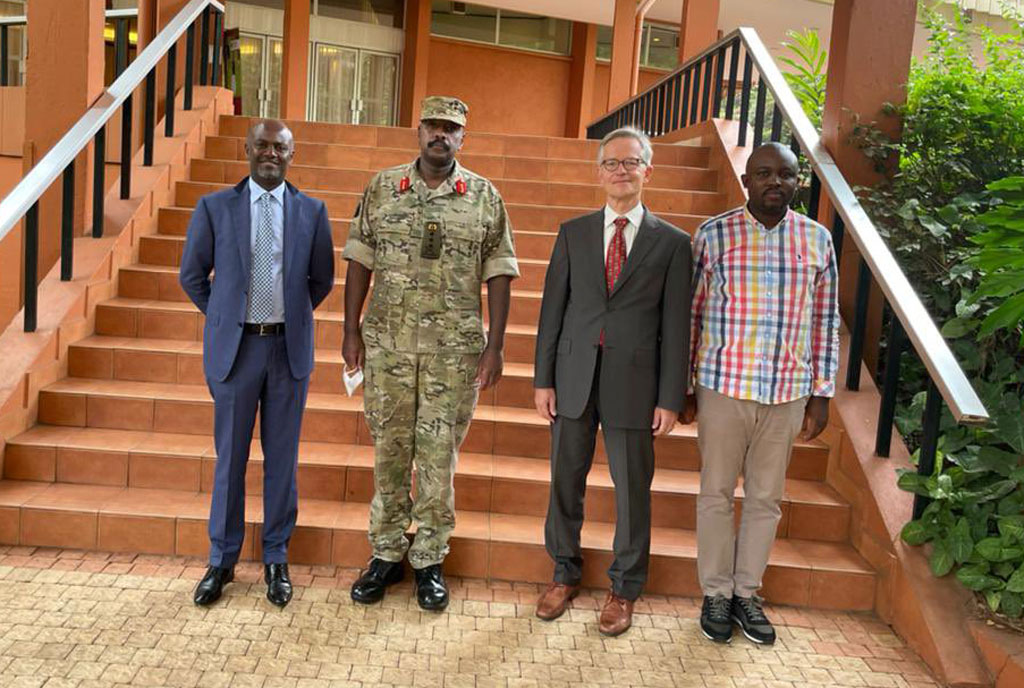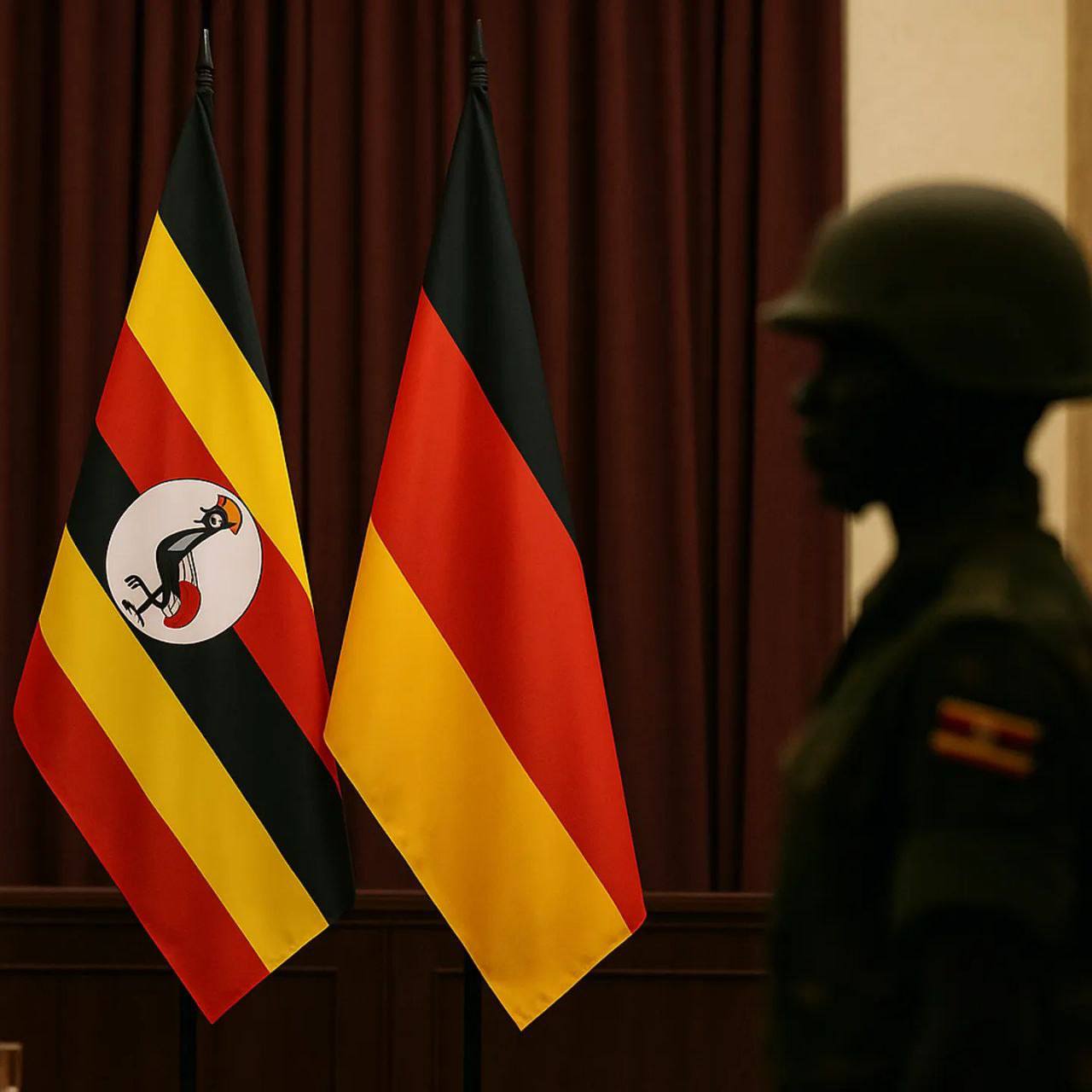Tensions between Uganda and Germany reached a new high today as the Ugandan government officially announced the immediate suspension of all defense and military cooperation with Germany. The dramatic move, which took effect this morning, follows direct allegations from Ugandan authorities that the German ambassador to Kampala, Mathias Schauer, has been involved in “subversive activities” aimed at undermining the Ugandan state.
Immediate Action Taken
In a statement released this afternoon by Colonel Chris Magezi, the acting director of Defence Public Information, the Uganda People’s Defence Forces (UPDF) declared that all ongoing military engagements with Germany would cease immediately. The decision was reportedly based on what Ugandan officials described as “credible intelligence reports” indicating that Ambassador Schauer had overstepped his diplomatic role by allegedly supporting groups opposed to the Ugandan government.
“We have received reliable information that the German ambassador has been actively involved in activities that are incompatible with his diplomatic status and that threaten the stability of Uganda,” said Colonel Magezi. “In light of these developments, all defense and military cooperation with Germany is hereby suspended until further notice.”
Diplomatic Fallout and Regional Implications
The suspension has sent shockwaves through diplomatic circles in Kampala and beyond. Germany has been a key partner for Uganda in various military and security initiatives, including joint training exercises, logistical support, and participation in regional peacekeeping missions such as the African Union Transition Mission in Somalia (ATMIS). The abrupt halt to cooperation threatens not only bilateral relations but also the effectiveness of ongoing regional security efforts.
As of this evening, the German embassy in Kampala has yet to issue an official public response to the allegations or the suspension. However, sources close to the embassy indicate that discussions are underway at the highest levels in Berlin to assess the situation and determine the next course of action.
Political Context and Rising Tensions
Today’s decision comes at a time of heightened political tension in Uganda, as the country prepares for general elections in 2026. The government has recently intensified its crackdown on opposition figures and dissidents, drawing criticism from international human rights organizations. President Yoweri Museveni’s administration has become increasingly sensitive to perceived foreign interference, particularly in the lead-up to the elections.

The controversy surrounding Ambassador Schauer reportedly escalated following a closed-door meeting in Gulu earlier this week, where General Salim Saleh, President Museveni’s brother and a senior military advisor, confronted European diplomats over what he described as “unacceptable meddling” in Uganda’s internal affairs. Sources present at the meeting claim that the discussion became heated after Schauer criticized the online behavior of Uganda’s military chief, General Muhoozi Kainerugaba, who has been accused of using social media to threaten opposition leaders and foreign diplomats.
Broader Implications for Uganda-Germany Relations
Beyond the immediate suspension of military cooperation, the diplomatic rift could have far-reaching consequences for Uganda-Germany relations. Bilateral trade, which totaled over $335 million in 2023, could be affected if the dispute escalates. Additionally, the incident threatens to undermine decades of trust and collaboration between the two countries, with potential repercussions for other areas of cooperation, including development aid and cultural exchanges.
International Reaction and Next Steps
International observers have expressed concern over the escalating tensions. Analysts warn that the situation could set a precedent for other African nations facing similar allegations of foreign interference. The European Union, of which Germany is a leading member, is expected to discuss the matter at its next meeting, with some member states calling for a coordinated response to support their ambassador and uphold diplomatic norms.
For now, the suspension remains in force, and Ugandan officials have stated that it will not be lifted until the matter of the ambassador’s alleged involvement with “hostile forces” is fully resolved. The German government, meanwhile, is reportedly considering its options, including the possibility of recalling Ambassador Schauer for consultations.
A Defining Moment for Ugandan Diplomacy
Today’s announcement marks a defining moment in Uganda’s foreign policy. By taking a firm stand against perceived foreign interference, the government is sending a clear message about its commitment to sovereignty and national security. However, the move also highlights the delicate balance between asserting national interests and maintaining constructive international partnerships.
As both sides navigate this diplomatic crisis, the world will be watching to see how Uganda and Germany resolve their differences and whether this incident will lead to a lasting shift in their bilateral relations.

